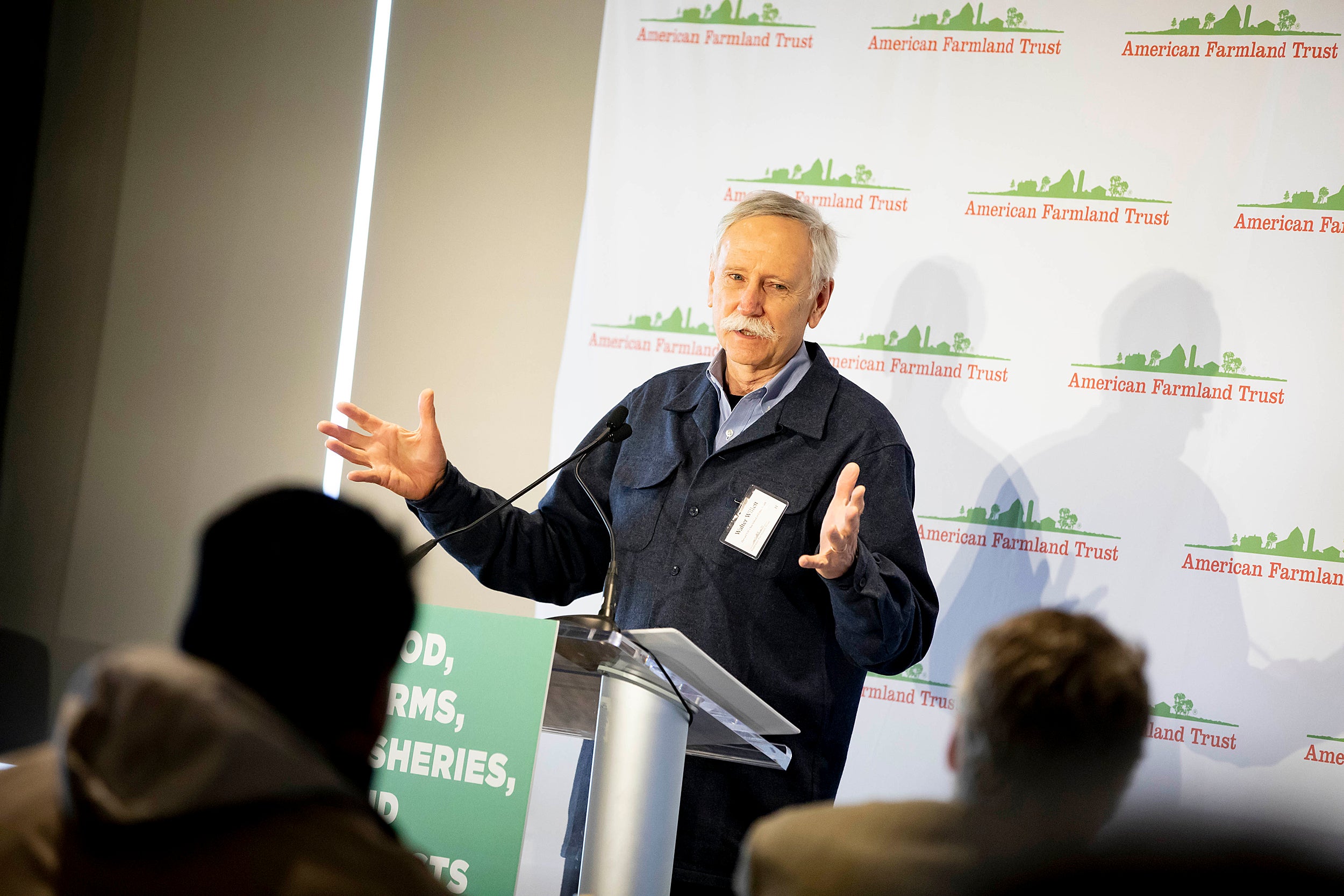
Iñigo De la Maza/Unsplash
A diet that’s healthy for people, and the planet
Symposium urges greater consumption, and growth, of plants
This year’s Harvard Nutrition and Obesity Symposium took a hard look at the relationship between the individual’s dietary health and the planet’s environmental well-being. Presented by the Nutrition Obesity Research Center at Harvard in partnership with the Harvard Medical School Division of Nutrition, Tuesday’s daylong virtual event brought together global experts to examine obesity and malnutrition in the context of global warming, zoonotic disease, and other agriculture-related threats.
In an often-sobering keynote speech, Jessica Fanzo, the Bloomberg Distinguished Professor of Global Food & Agricultural Policy and Ethics at Johns Hopkins Berman Institute of Bioethics, reviewed food production in the context of world-changing megatrends such as geopolitical shifts, climate change, urbanization, and economic inequality. This, she said, creates a need to recognize who actually controls the food system. “We’ve got 1.5 billion producers, many of them family farms. We have 7.9 billion eaters. And in the middle of this supply chain we have this consolidation of companies … This concentration creates a lot of power asymmetry.”
It also creates a need to transform food production, she said. At the moment, agriculture contributes to both greenhouse gas emissions and environmental stress, and fish stocks and certain plant and animal species already declining. “If we just keep doing what we’re doing, we will not meet the Paris climate-change targets,” she said. Meanwhile the burdens of malnutrition are “massive and universal,” with unhealthy food causing strokes and heart disease. “Diets which are meant to nourish us, are now a risk factor for disease and death.” Finally, COVD-19 has forced the realization that “Zoonotic pandemics are not going anywhere. Sixty percent of emerging diseases are zoonotic and of that, 70 percent comes from wildlife.” This is connected to the destruction that food production wreaks on natural habitats and biodiversity, she said.
The afternoon’s panels pointed a way out of the crisis, in a section called “Moving Forward — Individual and Collective Actions Toward Sustainable Nutrition.” In his talk, Walter C. Willett outlined the specifics of a health-promoting and environmentally sustainable diet. Currently a Chan School professor of epidemiology and nutrition and a professor of medicine at Harvard Medical School, Willett chaired the Chan School’s Department of Nutrition for 25 years. More recently he co-chaired the EAT-Lancet Commission on Food, Planet, Health which brought together 35 scientists from 17 countries, and whose work he drew on for the talk.
The commission attacked the question of how to feed 9.8 billion people (the projected planet population by 2050) with a diet that is both healthy and sustainable — a huge challenge, he noted, given the several billion citizens of underprivileged countries who still lack iron and vitamins, the 2 billion adults in more affluent countries who are estimated to be overweight or obese, and the climate-damaging methane released by meat production. This, he noted, is coupled with a wider-reaching industrial effect on global warming. “As temperature increases, permafrost melts. That releases more methane, which increases global temperatures, and we’re really starting to spin out of control.”
Not surprisingly, the studies found that a diet heavy on nuts, legumes, whole grains, vegetables, and fish was healthiest for both the individual and the environment. Red meat and processed grains scored considerably lower, with sugar-sweetened drinks offering the least advantage. The Lancet commission ultimately produced a detailed report that gave specific targets for food consumption, including meat and dairy, along with strategies for moving toward a healthy and affordable diet. Willett said meeting the recommended targets would prevent up to 11 million premature deaths per year, and that a move toward plant-based diets would significantly slow climate change.
“Feeding 10 billion people a healthy diet within safe planetary boundaries is possible, and will improve the health and well-being of billions of people. This could allow us to pass onto our children a viable planet,” he said. “But this will not be easy. It is going to take the effort and participation of all of us.”
Would such a diet be affordable or even feasible? Tufts University nutrition science Professor Patrick Webb said it is, but it’s largely a matter of choice. “I don’t mean just consumer choices. I mean production technology choices at the farm level, policy choices by government ministers, and everything in between.” He concurred with Willett that consumers making healthier food choices would yield benefits, but also called for specific actions, on the government and industry level, that could facilitate a more sweeping agenda of food availability.
Webb’s recommendations included cultural steps, such as advertising, that would make healthier foods appealing, as well as scientific steps, reducing food waste, and modifying packaging to make legumes and other healthy foods less perishable. He suggested that farm subsidies could be redirected to support a wider range of nutrient-rich foods. And he challenged worldwide governments to make policy changes on food prices, so that a “flexitarian” diet featuring less meat and dairy would be widely affordable. He called for a “do no harm” approach that would promote food accessibility. This, he said, could include forming high-level commissions to study availability, and recalculating national poverty lines to guide minimum wages and food safety nets.
Webb admitted these changes are unlikely to happen overnight.
“None of that is infeasible, all of it is challenging. But we have to really focus on the goal and to accept that fragmented approaches, marginal approaches, are going to lead to nothing happening.”








